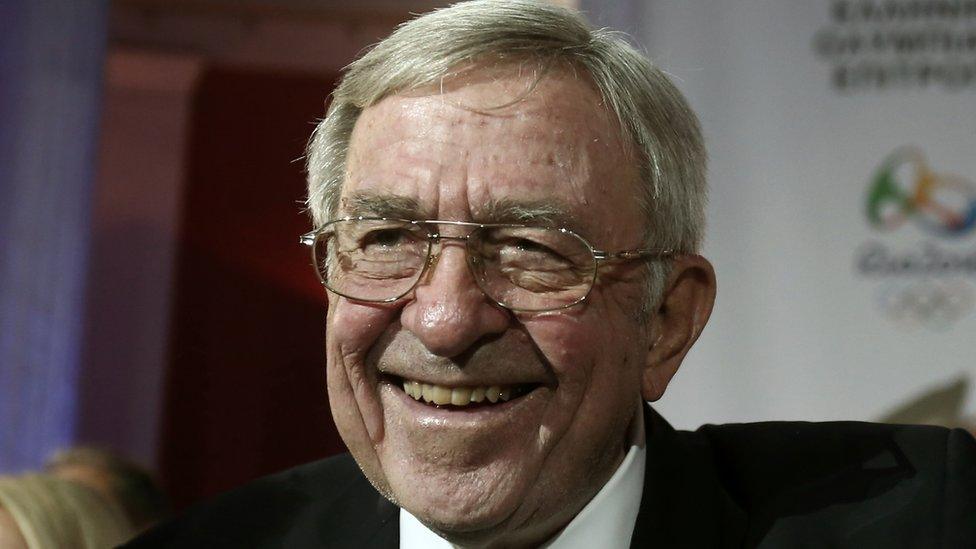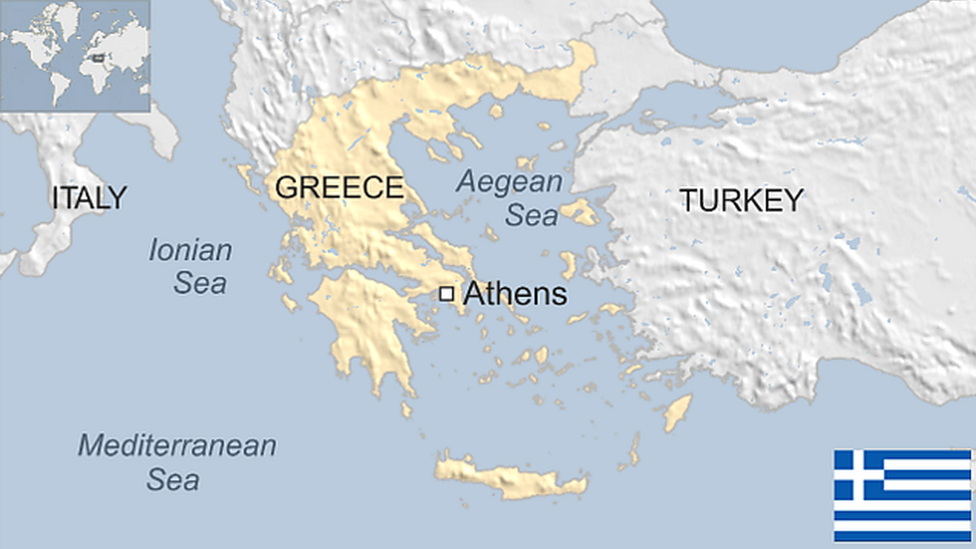Private burial for Greece's last king Constantine
- Published

Constantine II won gold in sailing at the 1960 Olympics in Rome
Greece's last king, Constantine II, has died in hospital in Athens aged 82. He had been suffering from heart and mobility problems.
Constantine came to the throne in 1964 during a turbulent period in Greek history that culminated in a military coup three years later.
He was soon forced to flee abroad following an unsuccessful counter-coup.
Greeks voted to abolish the monarchy in 1974, and the former king was later stripped of his Greek citizenship.
The Greek government decided on Wednesday that he would be buried as a private citizen, close to his ancestors who are buried in the grounds of the family's former summer palace at Tatoi.
The government will be represented at the funeral by Culture Minister Lina Mendoni, in a mark of the relatively low-key approach Athens is affording the ceremony. However, protocols will be followed for dignitaries to attend from abroad.
The late Prince Philip was Constantine's uncle and the former Greek monarch was considered close to his cousin, King Charles III. Constantine became godfather to Prince William and attended his royal wedding in 2010.
Prime Minister Kyriakos Mitsotakis referred in a statement to the former king's eventful life and to turbulent moments in Greek history that were "healed by the maturity of the Greek people".
Constantine II succeeded King Paul in March 1964 at the age of 23, marrying Princess Anne-Marie of Denmark soon afterwards. The couple had five children.
A keen sailor, Constantine won gold in a team event at the 1960 Olympics in Rome. But his popularity soon waned because of his involvement in 1965 in the downfall of Greece's elected government, which led eventually to military rule. Constantine took part in the swearing-in of the colonels who took power.
The junta fell in July 1974 but, within a few months, 69.2% of Greeks had voted to abolish the monarchy.
The prime minister praised Constantine's "discreet" stance after the vote and said his death was "on a human level, the formal epilogue to a chapter that was closed and done with the 1974 referendum".
Constantine stayed abroad, living in Rome and London, returning to Greece for a visit in 1981 for his mother Queen Frederica's funeral. He continued to regard himself as king, while accepting that Greece had become a republic.
In 2002, he and other family members received millions of euros in compensation for their former summer palace at Tatoi, but far less than they had sought. He returned to Greece with his family in 2013, saying he wanted nothing more than a quiet life.
- Published28 June 2023
